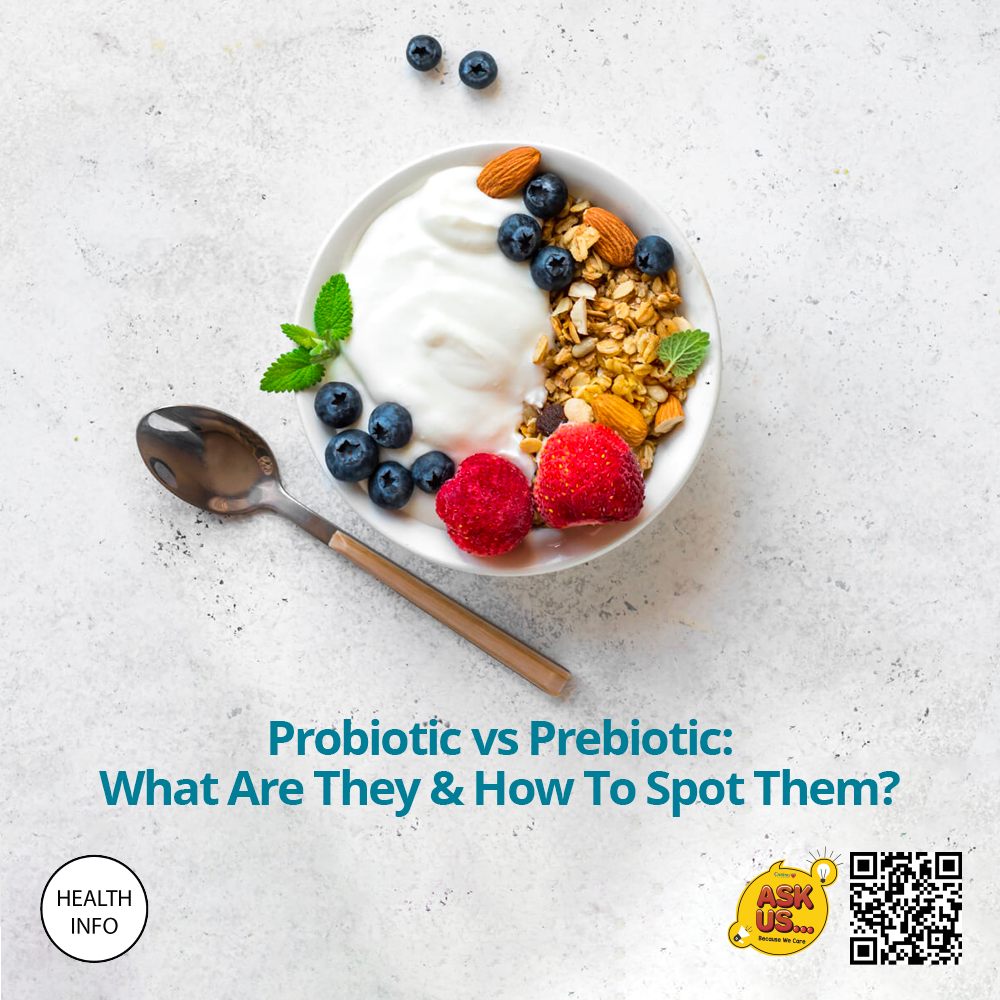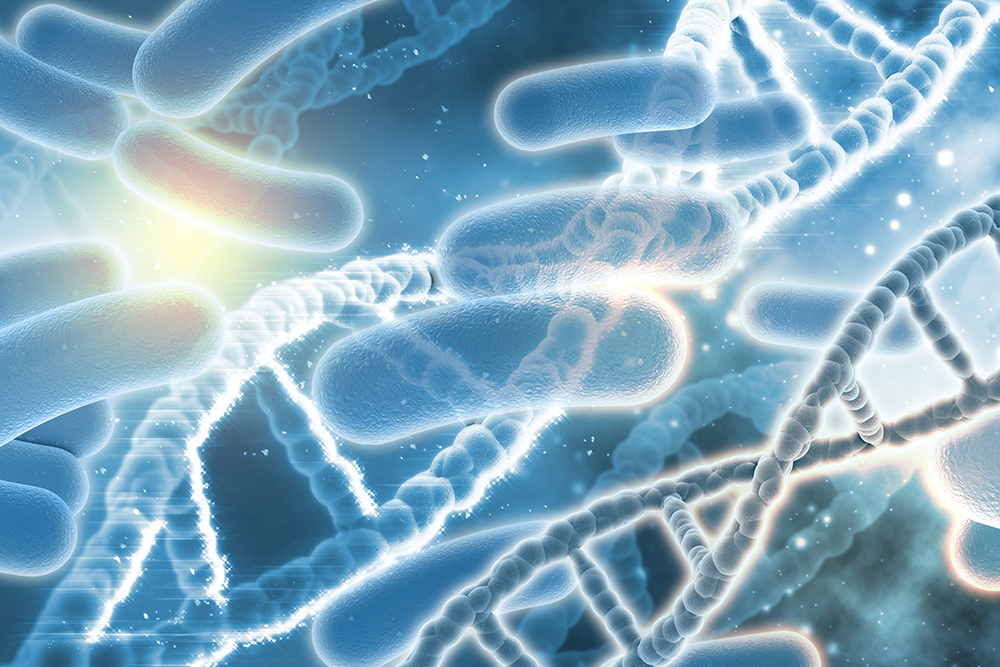- Home
- Health Center
- Health Info
- Probiotic vs Prebiotic: What Are They & How To Spot Them?
Probiotic
Probiotic vs Prebiotic: What Are They & How To Spot Them?


Bacteria are commonly associated with harmful germs that cause infections and disease. However, some of them are beneficial to our health! These helpful microorganisms are known as probiotics. Varied strains of probiotics play distinct roles in our bodies, contributing to functions such as aiding in food digestion, reducing bowel inflammation, improving bowel movement, combating disease-causing bacteria, producing essential vitamins, maintaining immunity balanced and even reducing cholesterol levels! Probiotics can be found naturally in yogurt and fermented foods, incorporated into dietary supplements, and utilized in beauty products. The most prevalent probiotics belong to groups known as Lactobacillus and Bifidobacterium.1
Prebiotics are equally important for human health! They are specialized carbohydrates (sugar or fibre) that human cannot digest. Instead, prebiotics act as nourishment, fueling the growth and activity of probiotics. Natural sources of prebiotics included fruits, vegetables and whole grain. Additionally, they are often incorporated into food and dietary supplements. Common prebiotics listed on food labels included Galactooligosaccharides (GOS), Fructoolligosaccharides (FOS), Oligofructose (OF) and Inulin.2
How to choose the right probiotics product?
The combination of pre and probiotics are known as synbiotics. Synbiotics utilize the synergy between pre- and probiotics to provide better health outcome in various aspects. Different combination of synbiotics can provide different health benefits, so it is advisable to consult our healthcare professionals before choosing the right product based on our specific health needs.3
Bacteria are commonly associated with harmful germs that cause infections and disease. However, some of them are beneficial to our health! These helpful microorganisms are known as probiotics. Varied strains of probiotics play distinct roles in our bodies, contributing to functions such as aiding in food digestion, reducing bowel inflammation, improving bowel movement, combating disease-causing bacteria, producing essential vitamins, maintaining immunity balanced and even reducing cholesterol levels! Probiotics can be found naturally in yogurt and fermented foods, incorporated into dietary supplements, and utilized in beauty products. The most prevalent probiotics belong to groups known as Lactobacillus and Bifidobacterium.1
Prebiotics are equally important for human health! They are specialized carbohydrates (sugar or fibre) that human cannot digest. Instead, prebiotics act as nourishment, fueling the growth and activity of probiotics. Natural sources of prebiotics included fruits, vegetables and whole grain. Additionally, they are often incorporated into food and dietary supplements. Common prebiotics listed on food labels included Galactooligosaccharides (GOS), Fructoolligosaccharides (FOS), Oligofructose (OF) and Inulin.2
How to choose the right probiotics product?
The combination of pre and probiotics are known as synbiotics. Synbiotics utilize the synergy between pre- and probiotics to provide better health outcome in various aspects. Different combination of synbiotics can provide different health benefits, so it is advisable to consult our healthcare professionals before choosing the right product based on our specific health needs.3
References
- Probiotics : What You Need To Know. National Center for Complementary and Integrative Health. (Web accessed January 2024). Web link : https://www.nccih.nih.gov/health/probiotics-what-you-need-to-know
- Prebiotics. John Collins. (Web accessed January 2024). Web link : https://www.webmd.com/digestive-disorders/prebiotics-overview
- PROBIOTICS VS. PREBIOTICS. VS. SYNBIOTICS: DIFFERENCES AND BENEFITS. DaVinci Healthcare Expert. (Web accessed January 2024). Web link: https://blog.davincilabs.com/blog/probiotics-vs.-prebiotics.-vs.-synbiotics-differences-and-benefits
Latest Health Info
Healthy Weight, Happy Joints
How Does Weight Affect Knee Health? The Link Between Pounds And Pain Osteoarthritis (OA) involves the degeneration of joints, which ...
The Gut Warriors: Prebiotics, Probiotics and Postbiotics
When it comes to gut health, you’ve probably heard of prebiotics and probiotics. But did you know there’s also ...
Tip Moreh: Masa Berbuka Puasa
Moreh adalah tradisi unik yang biasanya diadakan selepas solat tarawih pada bulan Ramadan. Ia melibatkan penyediaan dan perkongsian makanan ringan ...



